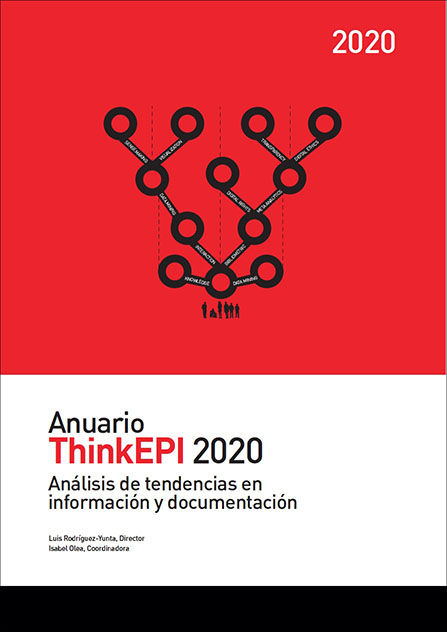Read, play, learn and communicate in a safe environment: security, privacy and confidentiality in children´s applications
DOI:
https://doi.org/10.3145/thinkepi.2020.e14c02Keywords:
Security, Privacy, Confidentiality, Policies, Children´s apps, Regulations, Legislation.Abstract
The widespread concern to protect the privacy, security and confidentiality of minors in the digital field has led to the approval of national and international laws, the incorporation of specific articles in existing ones and the creation of quality seals, trying to avoid the collection and inappropriate use of data. This regulation requires, among other things, that developers write a clear and concise privacy and security policy, that it be public, transparent and known to users. It is necessary to know if companies include this type of information in applications or their websites, and especially what data should appear. Only in this way adults will be able to decide or nor to allow the download and use of these applications by minors.
References
Children´s internet protection Act (Cipa): Guide. https://www.fcc.gov/sites/default/files/childrens_internet_protection_act_cipa.pdf
Children´s internet protection Act (Cipa): Consumer https://www.fcc.gov/consumers/guides/childrens-internet-protection-act
Children´s online privacy protection act (Coppa). https://www.ftc.gov/enforcement/rules/rulemaking-regulatory-reform-proceedings/childrens-online-privacy-protection-rule
Crescenzi-Lanna, L.; Valente, Riccardo; Suárez-Gómez, Rafael (2019). "Aplicaciones educativas seguras e inclusivas: La protección digital desde una perspectiva ética y crítica". Comunicar, v. XXVII, n. 61, p. 93-102. https://doi.org/10.3916/C61-2019-08
España (2018). "Ley Orgánica 3/2018, de 5 de diciembre, de protección de datos personales y garantía de los derechos digitales". BOE, n. 294, 6 diciembre. https://www.boe.es/eli/es/lo/2018/12/05/3
Falestchi, Demian (2020) "Cómo se protege a los niños en internet en 2020" Infobae, 3 febrero. https://www.infobae.com/america/opinion/2020/02/03/como-se-protege-a-los-ninos-en-internet-en-2020
García Rodríguez, Araceli; Gómez-Díaz, Raquel (2016). Lectura digital infantil: dispositivos, aplicaciones y contenidos. Barcelona: Editorial UOC. Colección El profesional de la información, n. 33. ISBN: 978 84 9116 433 3
Gómez-Díaz, Raquel; García-Rodríguez, Araceli (2018). "Criterios de calidad y estándares de presentación en los libros-app: el sector de los contenidos infantiles". El profesional de la información, v. 27, n. 3, pp. 595-603. https://doi.org/10.3145/epi.2018.may.12
Gonzalo, Marilín (2018) "Más de la mitad de las aplicaciones infantiles envía datos a terceros". El país, 7 mayo. https://elpais.com/tecnologia/2018/04/30/actualidad/1525080756_303386.html
Hatch, Hans (2020) "Ley Coppa Youtube ¿Qué es?". Soy.marketing. https://soy.marketing/ley-coppa-youtube-que-es
Krivokapic, Djordje; Adamovic, Jelena (2016). "Impact of general data protection regulation on children´s rights in digital environment". Anali Pravnog fakulteta u Beogradu, n. 64, pp. 205-220. https://doi.org/10.5937/AnaliPFB1603205K
Levanta la cabeza (2019). "Marcas responsables y el nuevo internet de niños". Levanta la Cabeza, 12 diciembre. https://www.levantalacabeza.es/marcas-responsables-y-el-nuevo-internet-de-los-ninos
PwC (2019). Kids digital media report 2019. https://bit.ly/3ewnh7F
Reyes, Irwin; Wijesekera, Primal; Reardon, Joel; On, Amit-Elazari-Bar; Razaghpanah, Abbas; Vallina-Rodríguez, Narseo; Egelman, Serge (2018). "Won´t somebody think of the children?" Examining Coppa compliance at scale". Proceedings on privacy enhancing technologies, n. 3, pp. 63-83. https://doi.org/10.1515/popets-2018-0021
Rubio, Isabel (2018). "Estos son los datos que las aplicaciones infantiles más populares recopilan de tus hijos". Xataca, 5 octubre. https://www.xataka.com/privacidad/estos-datos-que-aplicaciones-infantiles-populares-recopilan-tus-hijos
Unión Europea (2016). Reglamento (UE) 2016/679 del Parlamento Europeo y del Consejo de 27 de abril de 2016 relativo a la protección de las personas físicas en lo que respecta al tratamiento de datos personales y a la libre circulación de estos datos y por el que se deroga la Directiva 95/46/CE (Reglamento general de protección de datos). https://eur-lex.europa.eu/legal-content/ES/TXT/PDF/?uri=CELEX:02016R0679-20160504&from=EN
Valentino-Devries, Jennifer; Singer, Natasha; Krolik, Aaron Keller, Michael, H. (2018). "How game apps that captivate kids have been collecting their data". The New York Times, 12 septiembre. https://www.nytimes.com/interactive/2018/09/12/technology/kids-apps-data-privacy-google-twitter.html?curator=MediaREDE
Yuste, Elisa (2016). "Servicio para el desarrollo de contenido legal para niños". ElisaYuste, 3 mayo. https://www.elisayuste.com/kids-web-services-contenido-legal-para-ninos


